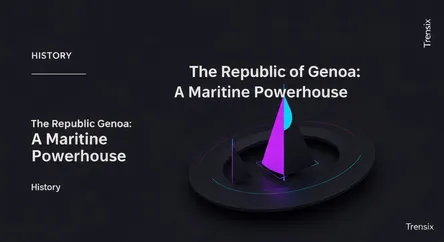History
The Republic of Genoa: A Maritime Powerhouse

Discover the Republic of Genoa, a medieval maritime power that dominated Mediterranean trade and finance for centuries before its fall.
What is it?
The Republic of Genoa was a powerful and wealthy independent state centered on the Ligurian port city of Genoa in northwestern Italy. Existing from the 11th century until 1797, it was one of the foremost "Maritime Republics" (Repubbliche Marinare), alongside rivals like Venice and Pisa. Governed as an oligarchic republic by powerful merchant families, Genoa used its formidable navy to build a vast commercial empire. This network included strategic colonies and trading posts across the Mediterranean and Black Seas, controlling key trade routes for goods like spices, silks, and grain.
Why is it trending?
The Republic of Genoa remains a topic of historical interest due to its immense economic and naval power during the Middle Ages and Renaissance. Its rivalry with Venice for maritime supremacy defined Mediterranean politics for centuries. Furthermore, Genoa was a cradle of early modern capitalism, with institutions like the Bank of Saint George, founded in 1407, playing a crucial role in European finance. The republic's influence extended globally, as it produced famed explorers like Christopher Columbus. Its eventual decline and absorption during the Napoleonic era mark a significant turning point in European history, concluding the age of independent Italian city-states.
How does it affect people?
For its citizens, particularly the ruling merchant families, the Republic's success brought immense wealth and influence, funding the construction of magnificent palaces that still stand today. Its vast trade networks connected diverse cultures, bringing goods, ideas, and people from the Levant and the East to Europe. Genoese merchants and bankers became key financiers for European monarchies, shaping international politics. However, its dominance also fueled conflicts and wars, and its ships were instrumental in transporting armies during the Crusades and were also major players in the medieval slave trade.